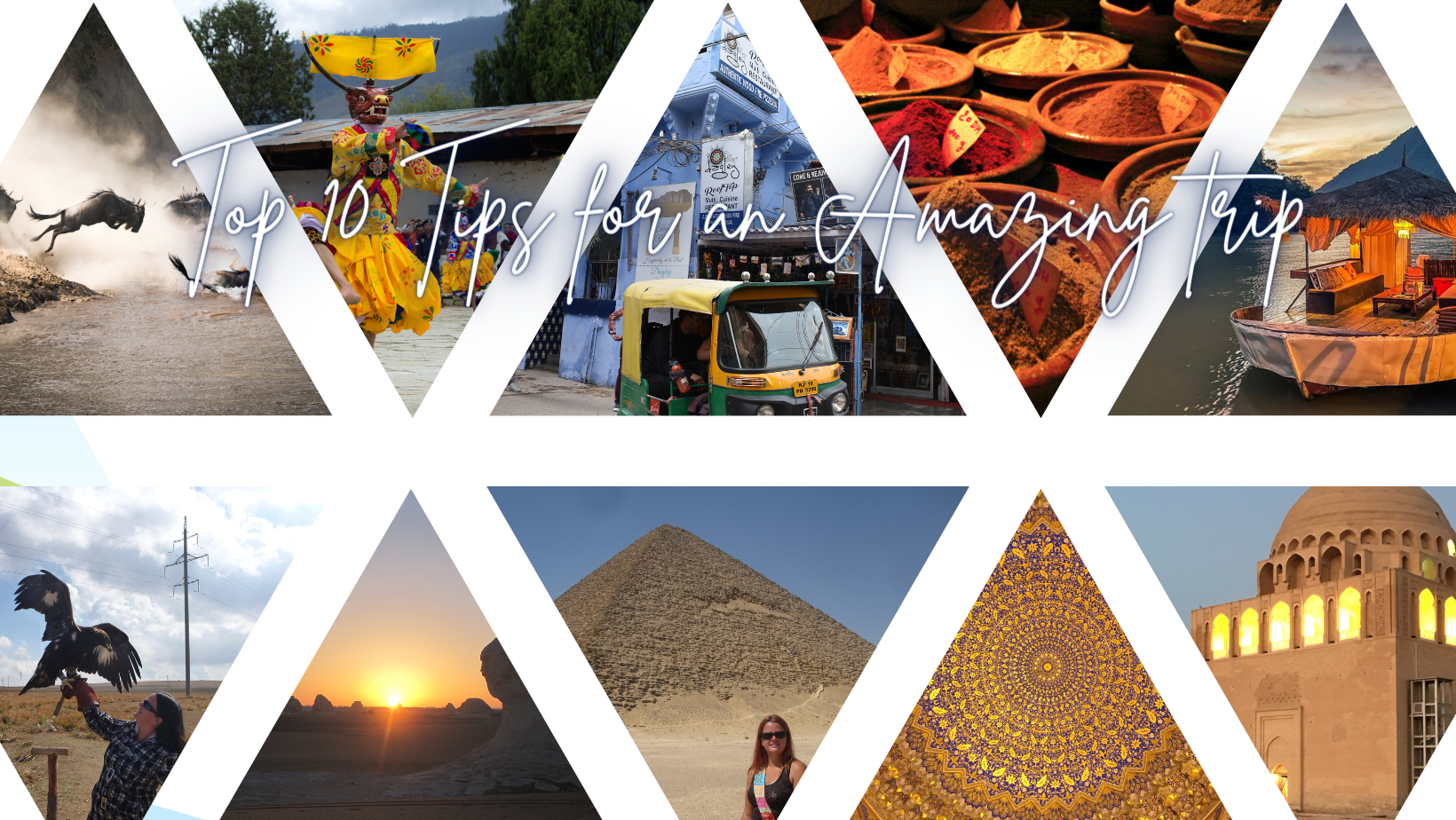
Getting travel tips is never an easy process. There’s a lot on the internet, on social media, friends and family are usually only too keen to throw in their two cents. Our number one travel tip is to get your information from a reliable source and what could be more reliable than a tour company with representatives on the ground in the countries they visit and an owner with years of experience in tour operations and personal travel.

Do I need a visa?
Need a visa for where you’re travelling? Unsure if you need a visa for where you’re travelling? Whatever the case you should ALWAYS seek advice on visas from a reputable source such as an embassy or consulate. If the embassy or consulate in unhelpful you can do a search on a professional service like Visa Link which don’t charge just to find out if you need a visa.
One of our biggest don’ts when researching visas is asking in Facebook groups. While it’s great to ask others who may have been to the destination for travel tips about restaurants, sightseeing and places to stay asking about visa requirements can be risky. This is because visa requirements are different depending on your circumstances. If the person answering you question is a different nationality to you, the information they are giving you is most likely incorrect. Visa requirements also change frequently, so if the person visited 6 months ago, there might have been a change between now and then. Unfortunately, social media is also home to some rather nasty people, and you also need to consider that someone could be giving you the wrong information on purpose!
What is the best way to keep my valuables safe?
Don’t put all your eggs in one basket. Imagine losing your passport, wallet, phone and travel documents all at once. Nightmare, right? As frequent travellers ourselves, we see social media sites like Facebook and Instagram pushing this fantastic hold all wallets in our faces. While they may seem like a good idea, they are in fact, A VERY BAD IDEA! It’s always a good idea to keep your passport separated from your wallet, and even have cash in different places. What these amazing hold all wallets do is give thieves the perfect opportunity to steal all your valuables and important documents in one fell swoop.
The best way to not lose all your valuables at once is to put them in different places. Keep some cash in your wallet, but also keep some cash in your toiletry bag – we knew one person who kept some cash in a chewing gum bottle in her suitcase. Try to keep your passport separate from your wallet, even if it’s just in a different pocket in your bag. If you’re taking medicine, keep some in your everyday bag and some in your suitcase. Write down all the important phone numbers in your phone and then keep them in a separate place to your phone.
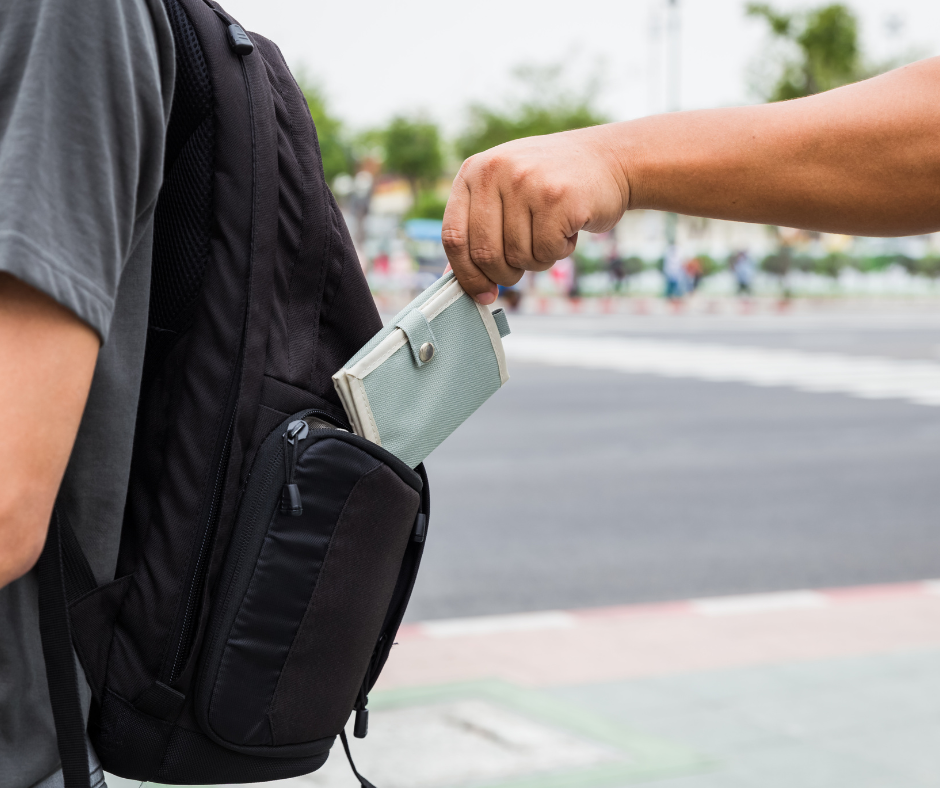
Make a copy of your passport photo page and keep it in a different place to your passport – this will assist greatly if heaven forbid, your passport should get lost or stolen.
It also goes with out saying that you should not flash valuable items like cameras around unnecessarily. Don’t be tempted to use the strap that hangs the camera from your neck – if you’re not using the camera put it away out of sight.

Who should I book with?
Bookings are always and we mean ALWAYS safer when you book either direct with the hotel, airline or tour operator or with a travel agent. Booking direct means your booking is with the provider and if something goes wrong, they don’t have to chase around trying to get information. Booking with a travel agent is handy because all your bookings are in one place – this means if something goes wrong and you need to make changes or cancel you only need to make one phone call to the agent who will look after you.
Booking on third party websites like booking.com, Expedia, Webjet and Viator can be hazardous. All these websites are third party, which means none of the product they are selling is actually their own. They all seem to operate by their own rules and if something goes wrong and you need help you could be left in the lurch. This was unfortunately a key learning for a lot of people during the COVID-19 pandemic where people lost thousands of dollars, particularly on airfares not necessarily because the provider wouldn’t give a refund, but because the third-party website either made that refund impossible to get or just outright kept the money.
The best way to use third party websites like Skyscanner, Viator and Expedia, is to see all the options in one place. Once you find the option you want go direct to the airline, tour operator or hotel or book with a travel agent. Use these websites like a search engine, we would never recommend booking with them.
One of our top travel trip is that if you MUST book through a 3rd party website, find out a bit about them. Try to call their customer service line, how long is the wait time? Do they even have a customer service line? Do they have any representation in your country? Look them up on social media and see what people are saying about them. Where is their customer service centre based? Do they have live chat? What’s it like? Are you talking to a person or a robot? Depending on the answers to these questions you may want to re-consider even if you are making a huge saving by booking with the website in question. Huge savings can turn into huge losses very quickly if the website has no customer service line and offers no assistance in the event you need to change or cancel….and no, travel insurance will not help you out in this instance. You also can’t contact the provider directly to make any changes or cancel, because the providers all have contracts through the websites that say they won’t deal with “their” clients directly. You also can’t go to a travel agent at this point and have them sort it out because they won’t have any access to your booking.
From an ethical perspective, sites like this also charge a huge commission for providers to be represented on them. Buying direct or from a travel agent (who’s commission is far less than a website) keeps travel affordable for everyone. Obviously, providers represented on these sites have to factor their huge commission into the price of tours, airfares, transfers and hotels. The less people that book on these websites, the less leverage they have with providers and the less commission they are able to charge.
Be Kind. Always.
Travelling can be frustrating. We know. Trust us, it will be much less frustrating if you’re kind to people.
We know there may be times where you just want to scream at people, like the airport check in agent who wants to charge you because your luggage is 1kg overweight. In these instances, it’s better to just pay the overweight baggage charge with a smile on your face, than yell at the check in agent, who then in an act of revenge seats you in the rear of the plane surrounded by screaming kids.
Always approach people who have the power to make your trip unpleasant with a smile on your face, ask them how their day has been so far, make polite chit chat while they’re assisting you, don’t forget please and thank you when making requests. People in the service industry are often treated quite badly by customers and bear the brunt of customer frustration when things aren’t going the right way for the customer. A nice person, or even someone who just extends basic courtesy can really make their day and just in general, you’ll make it really difficult for them to take their bad day out on you if you’re being nice and treating them with respect and courtesy, even if you’re baggage is overweight.
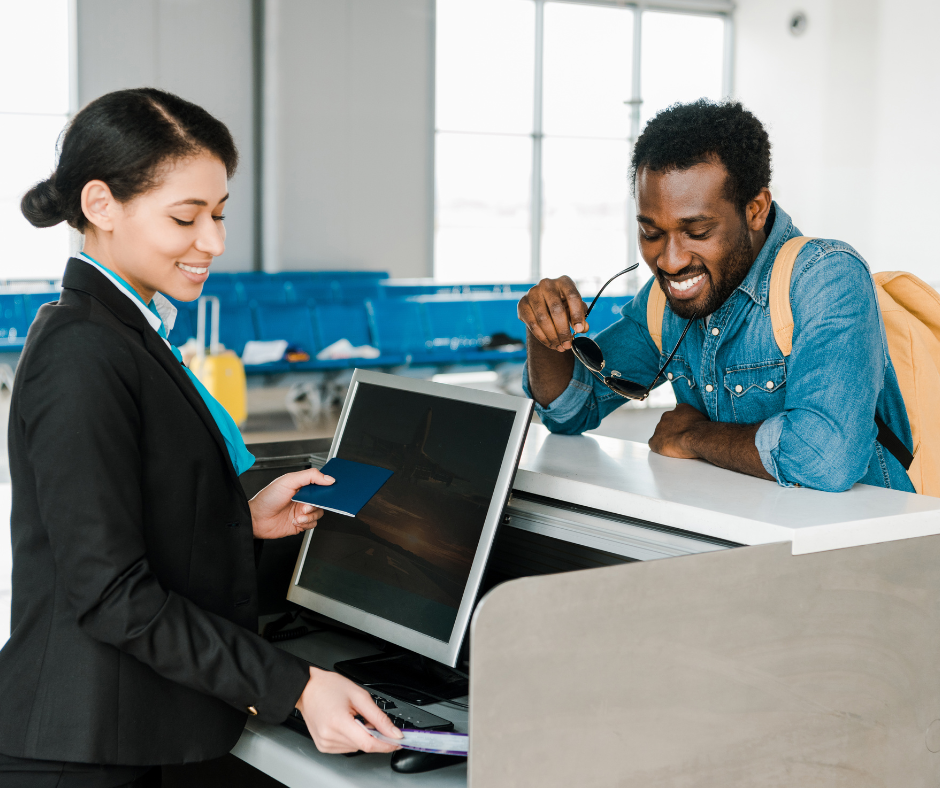
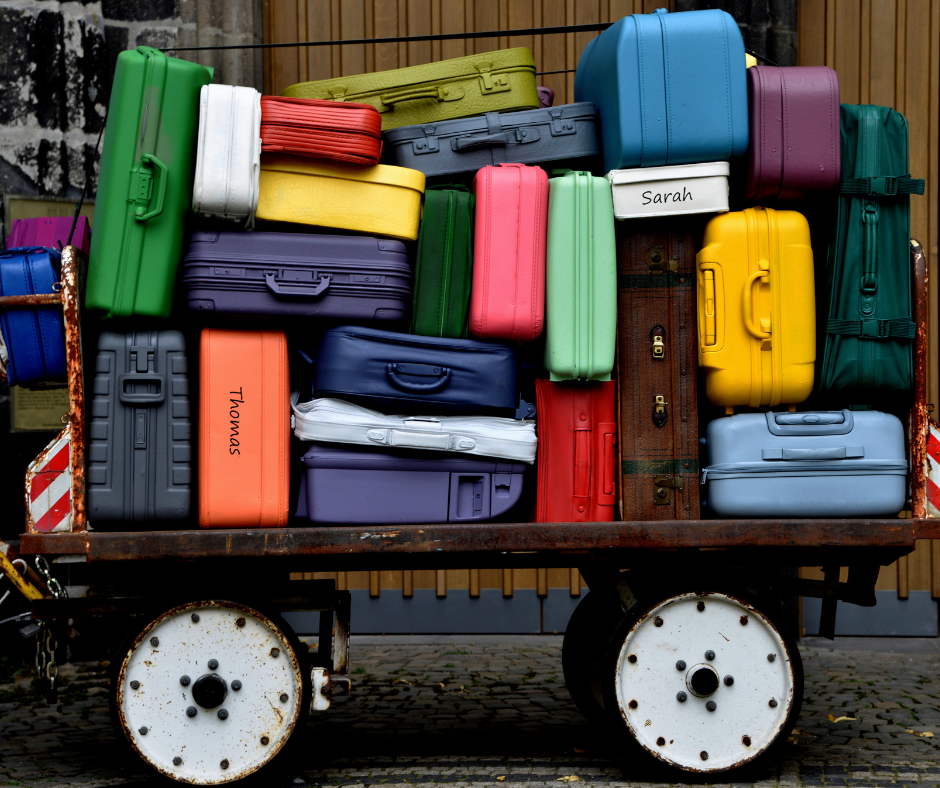
What’s the best luggage?
It’s so important to use the right luggage for your destination. Sounds pretty simple doesn’t it, but so many people get this wrong. Do a little research on the local conditions before you go. Try to find out if taking a giant wheelie bag is going to really impact your trip. Often when booking a tour, the tour operator will advise what kind of luggage is available. For example, when a tour operator recommends a soft 15kg backpack, they often aren’t doing it just because there isn’t room on the transportation, or they’ve got something against people who take a hair straightener absolutely everywhere. In places like Eastern Europe for example, the cobblestones in cities and towns, even major cities like Warsaw are haphazard and haven’t been maintained since before World War II, this means rolling a heavy suitcase over them could destroy it. A backpack could be a better choice for places like Africa, where in places, there are no roads, and you could be forced to roll your suitcase through a bog or sand. Not just packing appropriately, but using the right luggage is one of our top travel tips for a successful journey.
Is this tour or destination right for me?
What do we mean by this? This means taking stock of your own physical capabilities, limitations and expectations.
If you’re booking a tour, make sure it’s a good fit for you. If you have health issues, make sure the tour operator can accommodate them. Most good tour operators will have the fitness requirements of the tour they are operating on the itinerary page of their website. If you have dietary requirements make sure you tell the tour operator prior to travel, as they might not be able to cater to these or may only be able to cater if advised in advance. You should never show up on day one of your tour expecting that any health issues or dietary requirements can be accommodated by a tour operator. Failure to disclose health issues, could result in reduced enjoyment of the tour for not just you, but everyone else. It could also lead to the tour operator removing you from the tour for your own safety with out the possibility of a refund. Unfortunately, there are some unscrupulous operators out there, who will accept a booking knowing that a traveller might not be able to cope. At Inverted Atlas, we pride ourselves on making sure our travellers are as informed as possible about local conditions and fitness level requirements for the tour they are undertaking. We will never accept a booking from a traveller if we think they won’t be able to cope with conditions on the tour.

This point also applies to independent travellers in regard to overall conditions in the destination and could be something as simple as not being able to use an eastern stye squat toilet, common in the Middle East, Africa and Asia because you have issues with your knees. While hotels in these destinations have upright western style toilets, toilets in public areas may not – meaning you may be limited to using the toilets at hotels.
Departing with the correct expectations is of paramount importance when travelling. There’s nothing worse than arriving on a tour or to a destination and thinking – this isn’t what I expected at all. Making sure a tour or destination is right for you, isn’t just about health concerns. It’s about what you want out of your experience. So, give this some thought before you even start researching. Do I want 4-star hotels? Do I want meals included? Do I want a group experience? Do I want a more local experience, or would I prefer all the creature comforts of home? These are all questions you should be asking yourself prior to booking anything.
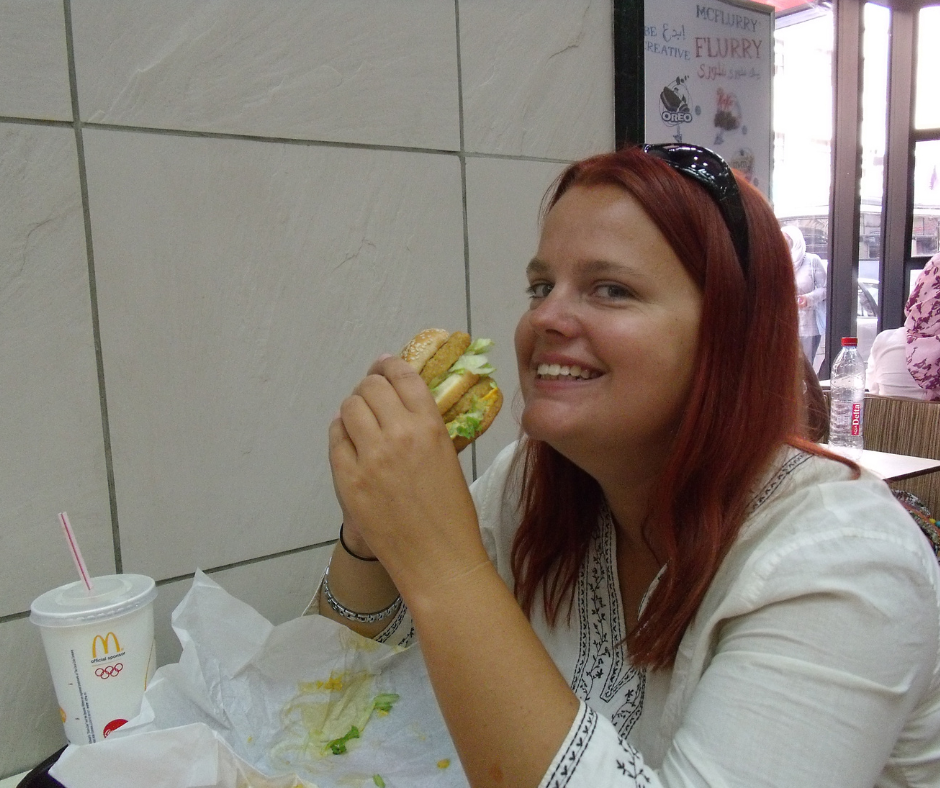
McDonalds, KFC and Starbucks are your friend. Sometimes.
We know, you want to try the local food. It’s part of the experience. We encourage you to do so. BUT, eating too much local food can upset your stomach. Your stomach is used to the food from your home country, overloading it with a completely different cuisine can make you sick. This isn’t because there’s something wrong with the food or it’s prepared in unsanitary conditions, it’s because you might be in China and not used to mountains or Chili or in India and not used to curry for every meal.
Don’t feel stupid for walking into the local McDonalds and asking for a Big Mac (except in India where you can’t get a Big Mac and it is in fact a Maharaja Mac) and fries. Don’t eat McDonalds for every meal, but your stomach will thank you for a taste of home occasionally. Don’t forget that fast food restaurants like McDonalds often have a local specialty – here in Australia it’s the McOz Burger, Morocco has the Chicken Mystic, Malaysia the McProsperity Burger, Egypt the McArabia (and the Big Mac Chicken – a personal favourite of our owner) and Germany the McRib.
Should I take a power bank?
Having a power bank can be a lifesaver. Phones die on long flights; budget airlines don’t always have USB chargers. Your camera might die while you’re out sightseeing. A power bank should be on everyone’s packing list.
While taking a power bank is one of our top travel tips, power banks, do come with a warning. Keep them in your carry on when flying and keep them handy! Some airports are worse than others for this especially in Thailand and India! There’s nothing worse than having to rifle through all your possessions trying to find a power bank because some overzealous official wants to inspect it. If you’re a blogger, influencer or just take work with you overseas and carry a laptop and removable hard drive, make sure there is a label on it telling officials exactly what it is. Officials may confiscate removable hard drives thinking they are power banks that don’t have the voltage displayed on them.


Do I really need hand sanitiser?
Hand sanitiser can be a big part of eating safe. Which is a big concern for every traveller. Most people assume that when they get the dreaded ‘Delhi Belly’ the food is to blame. Often it isn’t. The real culprit is the money.
While it is very important to use hand sanitiser before you eat, you’re often not eating with your hands, so it doesn’t make all that much difference. The most important time to use hand sanitiser is after you’ve used a public bathroom (even if there’s soap and you wash your hands, the taps can be filthy and so can the door you have to push open to get out of there), and after you’ve handled the money. Money is filthy – especially in the developing world in places like, Egypt, India, Cambodia and Morocco. If the COVID-19 pandemic has taught us nothing else, it’s that we all touch our faces far more than we could ever realise. Think about touching the money (which sometimes looks like a filthy piece of newspaper and is no cleaner than a used tissue) and then scratching your nose, rubbing your eye or heaven forbid touching your mouth.
Use hand sanitiser after handling cash. Period.
Is TripAdvisor a good place to find information?
No, it isn’t. Sounds like a weird tip. It’s not so weird. Most people only leave a review when they’ve had a negative experience. Around 1 in 10 people will leave a review for a positive experience so reviews on sites like this are skewed.
On top of this, essential details you could be relying on could be wrong. We once had a traveller traipse around a remote city in China looking for a particular museum she wanted to visit for hours. She’d gotten it off TripAdvisor and the address listed was incorrect. If you find something on TripAdvisor you want to visit – make sure you check the essential details, like address, opening hours and entrance fees on the attraction’s website, direct or even ask at your hotel. Asking for travel tips at your hotel is also a solid strategy.




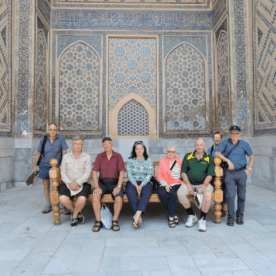

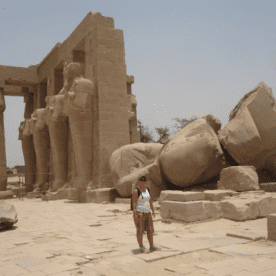

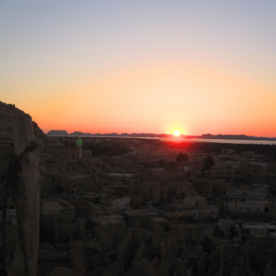

Leave a Reply